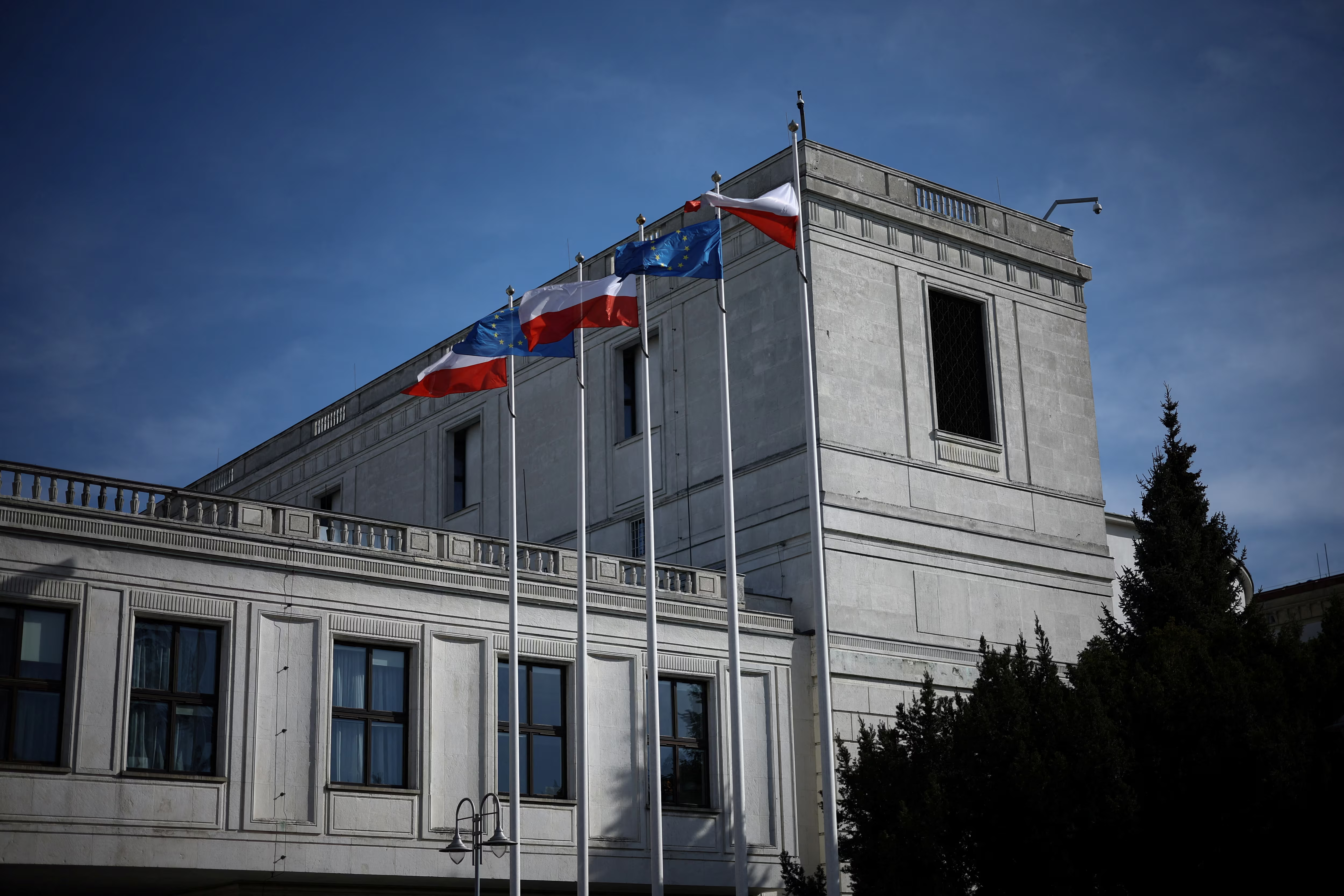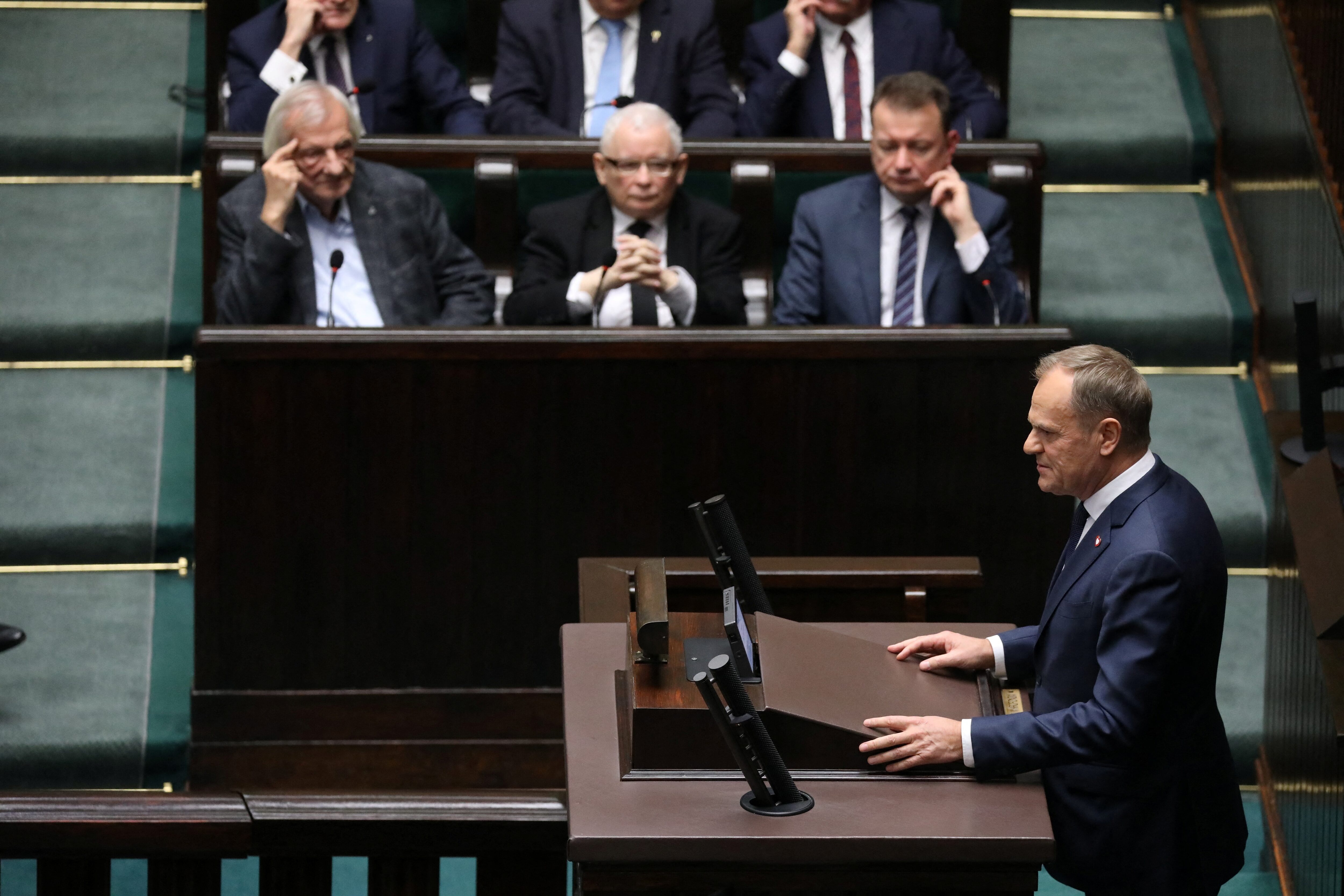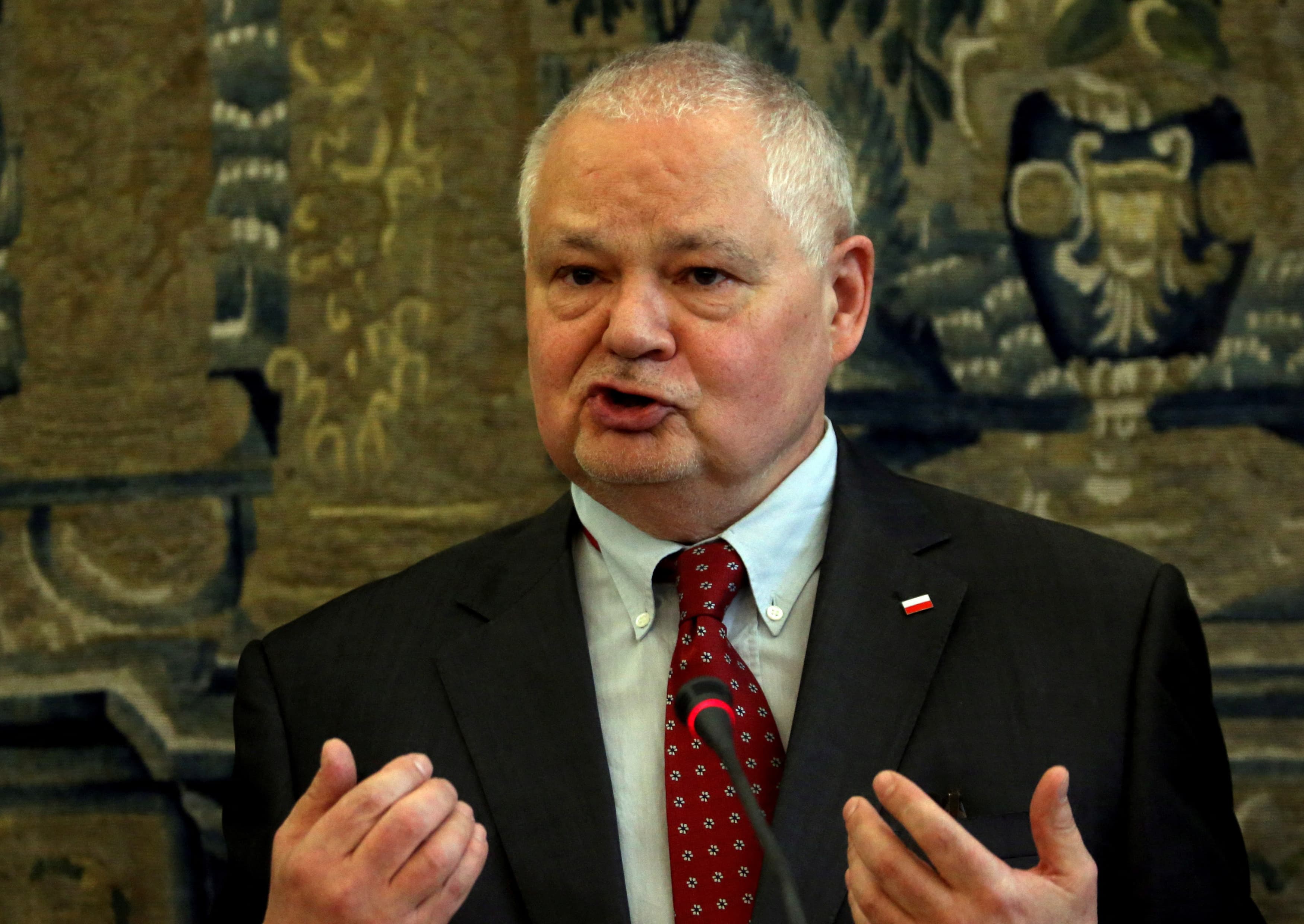In a stunning twist of political maneuvering, Poland"s ruling coalition finds itself teetering on the brink of collapse after a clandestine meeting between lower house speaker Szymon Hołownia and nationalist opposition leader Jarosław Kaczyński. This covert encounter, which took place under the cover of darkness, has unveiled deep fractures within a coalition already struggling to govern effectively.
Coalition"s Fragility Revealed
Since the coalition came to power in October 2023, its existence has been fraught with tension and conflicting agendas. Formed to oust the right-wing Law and Justice party (PiS), the coalition is composed of diverse factions, including the Civic Coalition led by Donald Tusk, the centrist Third Way, and the progressive Left. However, the only unifying factor among these groups has been their shared disdain for PiS, lacking a cohesive plan for governance.
The fallout from a recent presidential election loss, where the coalition"s candidate, Warsaw mayor Rafał Trzaskowski, was narrowly defeated by PiS-backed Karol Nawrocki, has only intensified the coalition"s struggles. With their mandate now in jeopardy, the coalition has found itself drifting aimlessly, questioning the legitimacy of the election results and attempting to reassert control through promises of a government reshuffle.
Secret Meetings Fuel Speculation
The midnight meeting between Hołownia and Kaczyński has sparked a frenzy of speculation regarding its implications. Local media reported that Hołownia"s government limousine was seen outside the home of Adam Bielan, a notable PiS strategist, just moments before Kaczyński"s car arrived. Although no photographic evidence of a face-to-face meeting exists, the timing and context raise serious questions about Hołownia"s motivations.
Some insiders suggest that Hołownia was seeking to negotiate terms for retaining his position as lower house speaker beyond the deadline outlined in the coalition agreement. Others speculate about the possibility of forming a “technical government” with PiS, potentially positioning Hołownia as a consensus prime minister. These theories highlight the precariousness of the coalition’s situation, as it grapples with its legitimacy.

Poland seeks to funnel 6 billion euros in EU funds for ...
Political Fallout from the Meeting
In the face of escalating criticism, Hołownia attempted to downplay the significance of the meeting, labeling the public’s reaction as a “wave of hysteria.” He contended that open dialogue between opposing camps is essential in a polarized political landscape. Yet, this assertion has done little to quell dissent among coalition members, with defense minister Władysław Kosiniak-Kamysz warning that engaging with Kaczyński at such an hour is far from standard political practice.
Magdalena Biejat, deputy speaker of the Senate and a prominent figure in the Left, characterized the nocturnal meetings as “absolutely unacceptable.” This sentiment reflects a broader concern about the coalition"s integrity and the potential erosion of trust among its members. In a political arena where accountability is paramount, Hołownia’s actions may be perceived as a betrayal of the progressive values his party claims to uphold.
Implications for Environmental Justice and Social Policy
The implications of this political turmoil extend beyond mere party politics; they threaten to undermine critical progress on social justice and environmental initiatives. The coalition was initially established to restore alignment with EU norms and to advance legislation on pressing issues like judicial independence, women"s and LGBT rights, and climate action. However, the current paralysis, exacerbated by the PiS-backed presidency, has left vital reforms in limbo.
The impending shift in governance could lead to a resurgence of PiS"s nationalistic policies, which have historically sidelined environmental concerns and marginalized vulnerable communities. Under Kaczyński"s leadership, the potential for a more radicalized, far-right government could spell disaster for those fighting for climate justice and fundamental human rights.

Donald Tusk appointed Polish PM, setting stage for warmer EU ties
Nationalism and the Rise of the Far-Right
The recent developments in Poland mirror a troubling trend across Europe, where far-right ideologies are gaining traction amid political instability. As reported by BBC, the newly elected president, Nawrocki, has already signaled an alignment with ultra-nationalist sentiments, including support for vigilante patrols on the German border. This realignment indicates a broader strategy to consolidate power by courting radical elements within the political landscape.
As the coalition grapples with its identity and purpose, the stakes for marginalized groups are at an all-time high. The possibility of a coalition between PiS and far-right factions, like the Confederation alliance, raises urgent questions about the future direction of Poland"s policies on climate and social justice. Without a unified front, the coalition risks ceding ground to forces that prioritize nationalist rhetoric over progressive action.



![[Video] Gunfire between Iraqi security forces and Sadr militias in Baghdad](/_next/image?url=%2Fapi%2Fimage%2Fthumbnails%2Fthumbnail-1768343508874-4redb-thumbnail.jpg&w=3840&q=75)
